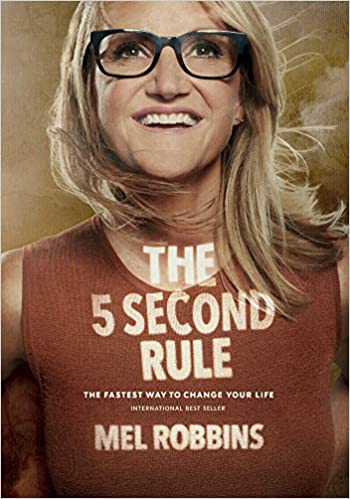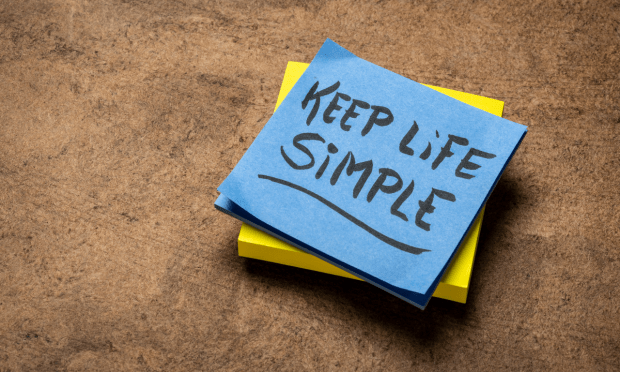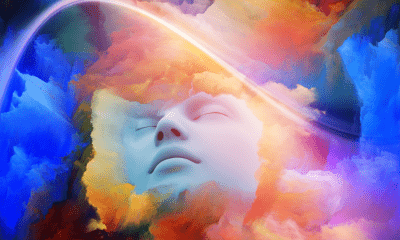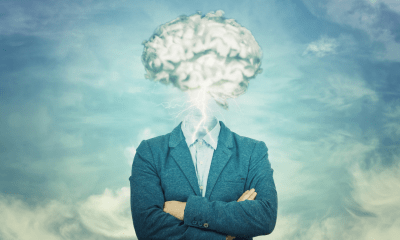In a world filled with constant distractions and overwhelming complexity, many people are seeking a simpler way of life. They yearn for a sense of inner peace and happiness that seems elusive amidst the chaos. Enter minimalism and mindfulness, two powerful practices that have captured the attention of individuals seeking to declutter their minds and spaces.
The art of simplicity is not merely about owning fewer possessions or emptying our calendars; it is a mindset that encourages us to focus on what truly matters. By embracing minimalism, we learn to let go of material possessions that no longer serve us, creating space for meaningful experiences and relationships.
At the same time, mindfulness teaches us to be fully present in the moment, to appreciate the beauty of simplicity, and to cultivate a deep sense of gratitude. Together, these practices offer a pathway to unlocking happiness and finding fulfillment in the simplicity of life. Join us on this journey as we explore the art of simplicity and discover how it can transform our lives for the better.

The 5 Second Rule
by Mel Robbins
⏱ 11 minutes reading time
🎧 Audio version available
What is minimalism and mindfulness?
Minimalism and mindfulness are two practices that have gained popularity in recent years, as people seek ways to simplify their lives and find greater happiness. Minimalism is the intentional promotion of the things we value most and the removal of everything that distracts us from it. It is about living with less, decluttering our physical and mental spaces, and focusing on what truly brings us joy and fulfillment.
On the other hand, mindfulness is the practice of being fully present and engaged in the present moment, without judgment. It involves paying attention to our thoughts, feelings, and sensations in a non-reactive way, and cultivating a sense of acceptance and compassion towards ourselves and others. Minimalism and mindfulness go hand in hand, as they both encourage us to let go of unnecessary distractions and focus on what truly matters.
The connection between simplicity and happiness
There is a deep connection between simplicity and happiness. When we simplify our lives, we create space for the things that truly matter to us. By decluttering our physical spaces, we eliminate distractions and create an environment that promotes calmness and clarity.
This allows us to focus on what brings us joy and fulfillment, whether it be spending time with loved ones, pursuing our passions, or engaging in activities that nourish our souls. Simplicity also helps us prioritize our time and energy, enabling us to be more intentional with our choices and commitments.
When we simplify our schedules and learn to say no to things that don’t align with our values, we free up time for activities that bring us joy and fulfillment. Ultimately, simplicity allows us to live a more meaningful and balanced life, leading to greater happiness and fulfillment.
Benefits of adopting a minimalist lifestyle
Adopting a minimalist lifestyle offers numerous benefits that can positively impact our overall well-being. One of the key benefits is the reduction of stress and overwhelm. By eliminating physical and mental clutter, we create a sense of calm and order in our lives. We no longer feel weighed down by the burden of excessive possessions or the pressure to constantly keep up with societal expectations.
Additionally, minimalism can lead to financial freedom. When we stop chasing after material possessions and focus on what truly brings us joy, we become more mindful of our spending habits. This can help us save money, pay off debt, and prioritize experiences over things. Furthermore, minimalism promotes sustainable living. By consuming less and being more mindful of our environmental impact, we contribute to a healthier planet.
Simplifying our lives also allows us to cultivate deeper relationships and connections. When we let go of superficial distractions, we have more time and energy to invest in meaningful interactions with our loved ones. This can lead to stronger bonds, increased happiness, and a greater sense of belonging.
How mindfulness can enhance simplicity and happiness
Mindfulness is a powerful practice that can enhance simplicity and happiness in our lives. By cultivating a mindful mindset, we become more aware of our thoughts, emotions, and sensations. This awareness allows us to recognize when we are being pulled into the chaos of our busy lives and helps us bring our focus back to the present moment.
Mindfulness also enables us to appreciate the beauty of simplicity in our everyday experiences. When we are fully present, we can savor the simple joys of life, such as a warm cup of tea, a beautiful sunset, or a heartfelt conversation with a loved one. Moreover, mindfulness helps us cultivate a deep sense of gratitude for the present moment and the simple pleasures it offers.
By practicing gratitude, we shift our focus from what is lacking to what we already have, leading to a greater sense of contentment and happiness. Overall, mindfulness enhances our ability to embrace simplicity and find joy in the present moment.
Practical tips for embracing minimalism in daily life
Embracing minimalism in our daily lives can be a transformative process.
Here are some practical tips to help you get started:
- Declutter your physical space: Start by decluttering one area of your home at a time. Donate or sell items that no longer serve you and keep only the things that bring you joy or have practical value. Remember, minimalism is not about getting rid of everything, but about surrounding yourself with things that truly matter.
- Streamline your digital life: Take a look at your digital devices and declutter them as well. Delete unnecessary apps, unsubscribe from email lists, and organize your digital files. This will help reduce digital distractions and create a more focused and intentional online experience.
- Simplify your wardrobe: Create a capsule wardrobe by keeping only a limited number of versatile and high-quality clothing items that you truly love and wear regularly. This will make getting dressed in the morning easier and save you time and energy.
- Practice mindful consumption: Before making a purchase, ask yourself if the item aligns with your values and brings you genuine joy. Avoid impulse buying and be more intentional with your purchases. Consider the environmental impact and ethical implications of the products you buy.
- Let go of emotional clutter: Minimalism is not just about physical possessions; it also involves letting go of emotional baggage. Practice forgiveness, let go of grudges, and cultivate a positive mindset. This will create space for more happiness and fulfillment in your life.
Remember, minimalism is a personal journey, and it looks different for everyone. Experiment with different strategies and find what works best for you. Embrace the process and be patient with yourself as you navigate the path towards simplicity and happiness.
Mindfulness practices to cultivate a simpler, happier mindset
Cultivating a simpler, happier mindset through mindfulness requires regular practice.
Here are some mindfulness practices to incorporate into your daily routine:
- Meditation: Set aside a few minutes each day to sit in silence and focus on your breath. This simple practice can help calm your mind, reduce stress, and increase your overall sense of well-being.
- Mindful eating: Slow down and savor each bite of your meals. Pay attention to the flavors, textures, and smells of the food. This practice not only enhances your enjoyment of the meal but also promotes mindful eating and reduces overeating.
- Gratitude journaling: Take a few minutes each day to write down three things you are grateful for. This practice shifts your focus to the positive aspects of your life and cultivates a sense of gratitude and contentment.
- Mindful movement: Engage in activities such as yoga, walking, or tai chi with full awareness. Pay attention to the sensations in your body, the rhythm of your breath, and the environment around you. This practice helps you connect with your body and the present moment.
- Digital detox: Take regular breaks from technology and disconnect from screens. Engage in activities that allow you to be fully present, such as reading a book, going for a walk in nature, or having a meaningful conversation with a loved one.
Remember, mindfulness is not about perfection or achieving a specific outcome. It is about being present and non-judgmental in each moment, no matter how simple or mundane. Practice these mindfulness techniques regularly, and you will gradually cultivate a simpler, happier mindset.
The impact of minimalism and mindfulness on mental well-being
Minimalism and mindfulness have a profound impact on mental well-being. By simplifying our lives and practicing mindfulness, we reduce stress, anxiety, and overwhelm. When we let go of material possessions and unnecessary distractions, we create a sense of spaciousness and calm in our minds. This allows us to focus on what truly matters and be more present in our daily lives.
Moreover, mindfulness helps us develop emotional intelligence and self-awareness. It enables us to recognize and manage our thoughts and emotions in a healthy and constructive way. By cultivating a non-judgmental attitude towards ourselves and others, we develop greater compassion and empathy. This leads to healthier relationships and a more positive outlook on life. Overall, minimalism and mindfulness contribute to improved mental well-being by promoting clarity, peace, and self-discovery.
Examples of successful minimalism and mindfulness influencers
In recent years, there has been a rise in minimalism and mindfulness influencers who inspire and guide others on their journeys towards simplicity and happiness. Here are a few examples:
- Marie Kondo: Known for her bestselling book “The Life-Changing Magic of Tidying Up” and her Netflix series, Marie Kondo has become a global icon of minimalism. Her KonMari method encourages people to declutter their homes and keep only items that spark joy.
- Leo Babauta: The creator of the popular blog Zen Habits, Leo Babauta shares practical advice on minimalism, mindfulness, and personal development. His minimalist philosophy focuses on finding simplicity in all aspects of life.
- Eckhart Tolle: A spiritual teacher and author, Eckhart Tolle’s teachings on mindfulness and presence have touched the lives of millions. His book “The Power of Now” has become a classic guide to living in the present moment.
- Joshua Becker: Joshua Becker is the founder of Becoming Minimalist, a blog dedicated to inspiring others to live a minimalist life. His writings explore the practical and emotional aspects of minimalism and its impact on personal growth.
These influencers have made a significant impact in spreading the message of simplicity and mindfulness. Their stories, tips, and insights serve as a source of inspiration and guidance for those seeking a simpler, happier life.
Recommended books and resources on minimalism and mindfulness
If you’re interested in diving deeper into the world of minimalism and mindfulness, here are some recommended books and resources:
- “Goodbye, Things: The New Japanese Minimalism” by Fumio Sasaki: In this book, Sasaki shares his personal journey towards minimalism and offers practical tips on decluttering and simplifying your life.
- “The Mindful Way through Depression” by Mark Williams, John Teasdale, Zindel Segal, and Jon Kabat-Zinn: This book combines mindfulness with cognitive therapy to help individuals overcome depression and find inner peace.
- “Essentialism: The Disciplined Pursuit of Less” by Greg McKeown: McKeown explores the power of essentialism, a disciplined approach to focusing on what truly matters, and eliminating the non-essential.
- “The Minimalist Home: A Room-by-Room Guide to a Decluttered, Refocused Life” by Joshua Becker: In this book, Becker provides a step-by-step guide to decluttering your home and creating a minimalist living space.
- Headspace: Headspace is a popular meditation app that offers guided meditations and mindfulness exercises to help you cultivate a daily mindfulness practice.
- Minimalism: A Documentary About the Important Things: This documentary explores the lives of minimalists from different walks of life and delves into the impact of minimalism on their happiness and well-being.
These resources provide valuable insights, practical advice, and inspiration for those looking to embrace simplicity and mindfulness in their lives.
Related: 4 Simple Ways to Relax and Destress Without Meditation
Conclusion: Embracing simplicity and mindfulness for a happier life
In a world that often values busyness, consumption, and complexity, the art of simplicity offers a powerful antidote. By embracing minimalism and mindfulness, we can unlock happiness and find fulfillment in the simplicity of life. Minimalism teaches us to let go of unnecessary possessions and distractions, creating space for meaningful experiences and relationships.
Mindfulness helps us be fully present, appreciate the beauty of simplicity, and cultivate gratitude. Together, these practices enable us to live a more intentional, balanced, and joyful life. As we embark on the journey towards simplicity and mindfulness, let us remember that it is not about achieving perfection or adhering to strict rules.
It is about embracing the process, letting go of what no longer serves us, and focusing on what truly brings us happiness and fulfillment. So, take a deep breath, simplify your life, and discover the art of happiness through minimalism and mindfulness.
What Is Snapreads?

With the Snapreads app, you get the key insights from the best nonfiction books in minutes, not hours or days. Our experts transform these books into quick, memorable, easy-to-understand insights you can read when you have the time or listen to them on the go.



